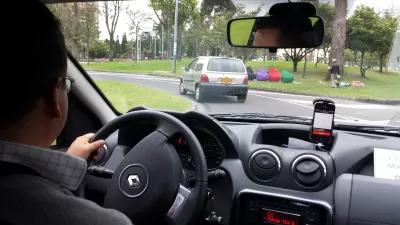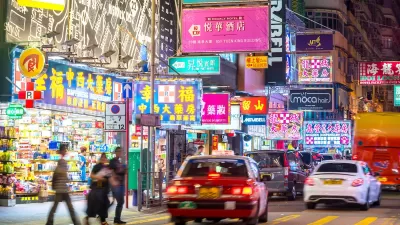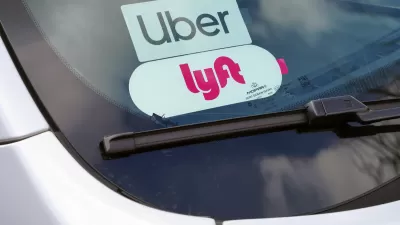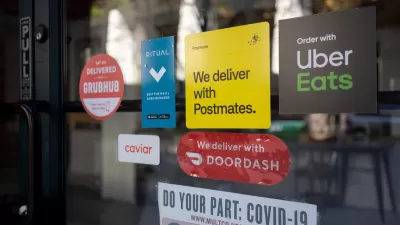A spate of media coverage responded to the news that Uber had released a new feature called "Smart Routes."

Josh Constine reports on the new Smart Routes feature from Uber, described as "a way to let you pay less money for a little less convenience and a little less time saved."
Basically, Smart Routes asks users to walk to a major arterial rather than hailing a car directly to their preferred location. "If you’re willing to set your pickup location anywhere along these Smart Routes, Uber will compensate you with a discount of $1 or more off the normal UberPool price."
Constine notices that the new feature resembles services offered by other transportation network companies (TNCs): "Smart Routes is similar to ride sharing service Loup, which pays people to drive their cars and pick people up on bus-like routes through a city, and Chariot which does the same but with big vans. It’s also reminiscent of Lyft’s HotSpots feature, where passengers can walk to a specific corner to get a discounted fair."
Other writers, however, noticed more that the new feature resembles transit. Matt Buchanan penned an article called "The Uber Endgame," which describes how Uber and Lyft "continue to look more and more like mass transit." Buchanan also notes a potentially dangeroud consequence of the continued advancement of TNCs: "One of the more subtle underlying issues with the rise of Uber is the company’s slow siphoning of the political will to fix existing—or build new—public transit infrastructure in major cities."
Alissa Walker picked up on that theme in a separate post, which includes an appeal for people with choices of transportation modes to continue to take transit, as a civic duty. Her take on Uber's recent advancements: "Sounds a heck of a lot like transit to me. But it’s not public. It’s not accessible, it’s not equitable, and it’s not serving the entire city. I refuse to believe that a fleet of robot cars operated by a single company is ever going to be a better transportation investment than a bunch of really fast fucking trains, smarter buses, solar-powered gondolas, and a comprehensive bike share that also includes e-bikes, kayaks, scooters, and maybe a few of those hoverboard-y things."
Finally, Nate Silver and Reuben Fischer-Baum bring data journalism to bear on the subject, which notes that TNCs could potentially become cost-competitive with cars by closely allying with public transit.
FULL STORY: Uber Tests Bus-Style Discounted “Smart Routes”

Trump Administration Could Effectively End Housing Voucher Program
Federal officials are eyeing major cuts to the Section 8 program that helps millions of low-income households pay rent.

Planetizen Federal Action Tracker
A weekly monitor of how Trump’s orders and actions are impacting planners and planning in America.

Ken Jennings Launches Transit Web Series
The Jeopardy champ wants you to ride public transit.

Driving Equity and Clean Air: California Invests in Greener School Transportation
California has awarded $500 million to fund 1,000 zero-emission school buses and chargers for educational agencies as part of its effort to reduce pollution, improve student health, and accelerate the transition to clean transportation.

Congress Moves to End Reconnecting Communities and Related Grants
The House Transportation and Infrastructure Committee moved to rescind funding for the Neighborhood Equity and Access program, which funds highway removals, freeway caps, transit projects, pedestrian infrastructure, and more.

From Throughway to Public Space: Taking Back the American Street
How the Covid-19 pandemic taught us new ways to reclaim city streets from cars.
Urban Design for Planners 1: Software Tools
This six-course series explores essential urban design concepts using open source software and equips planners with the tools they need to participate fully in the urban design process.
Planning for Universal Design
Learn the tools for implementing Universal Design in planning regulations.
Heyer Gruel & Associates PA
Ada County Highway District
Institute for Housing and Urban Development Studies (IHS)
City of Grandview
Harvard GSD Executive Education
Toledo-Lucas County Plan Commissions
Salt Lake City
NYU Wagner Graduate School of Public Service





























